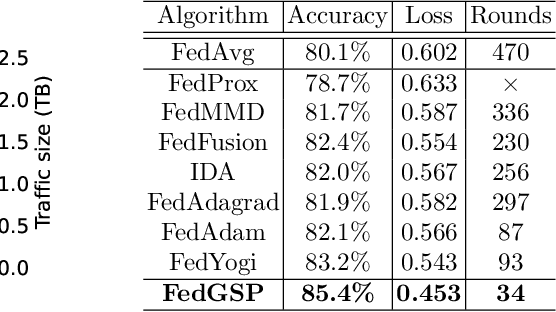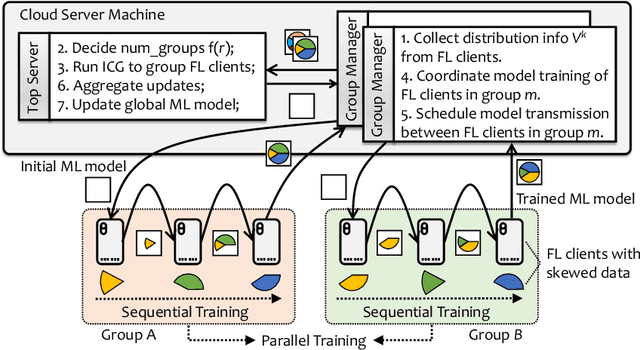Heterogeneous Federated Learning via Grouped Sequential-to-Parallel Training
Paper and Code
Jan 31, 2022



Federated learning (FL) is a rapidly growing privacy-preserving collaborative machine learning paradigm. In practical FL applications, local data from each data silo reflect local usage patterns. Therefore, there exists heterogeneity of data distributions among data owners (a.k.a. FL clients). If not handled properly, this can lead to model performance degradation. This challenge has inspired the research field of heterogeneous federated learning, which currently remains open. In this paper, we propose a data heterogeneity-robust FL approach, FedGSP, to address this challenge by leveraging on a novel concept of dynamic Sequential-to-Parallel (STP) collaborative training. FedGSP assigns FL clients to homogeneous groups to minimize the overall distribution divergence among groups, and increases the degree of parallelism by reassigning more groups in each round. It is also incorporated with a novel Inter-Cluster Grouping (ICG) algorithm to assist in group assignment, which uses the centroid equivalence theorem to simplify the NP-hard grouping problem to make it solvable. Extensive experiments have been conducted on the non-i.i.d. FEMNIST dataset. The results show that FedGSP improves the accuracy by 3.7% on average compared with seven state-of-the-art approaches, and reduces the training time and communication overhead by more than 90%.
 Add to Chrome
Add to Chrome Add to Firefox
Add to Firefox Add to Edge
Add to Edge